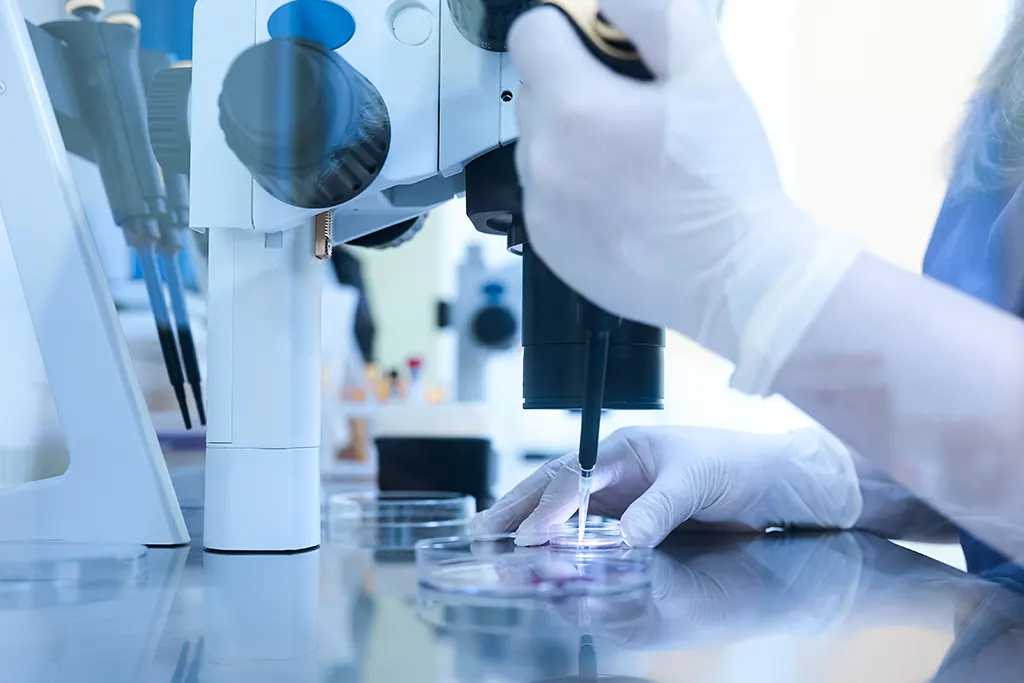What Is the ICSI Procedure?
The ICSI procedure is carried out in the following steps:
- ICSI, like IVF, follows the same hormonal stimulation route to force the ovaries to produce more than one mature egg. The eggs are subsequently removed using a gentle, minimally invasive instrument which softly goes into the ovaries to remove the eggs with suction.
- Here, one healthy sperm is selected from the batch of millions of sperm through the process of microscopic techniques that ensure mobility and morphology (shape). The sperm selected here are directly injected into the cytoplasm (the central portion) of each of the matured eggs.
- After a certain period of time, when the gametes (male and female reproductive cells) are fertilised, then the resulting embryos (fertilised eggs) are carefully and understandably observed and looked after in controllable surroundings in an incubator.
- At last, the transfer of the embryo to the uterus is done by a doctor utilising the transvaginal ultrasound to check the womb lining. Finally, a healthy embryo is transferred into the uterus for implantation and pregnancy.
What are the Factors Affecting the Success of the ICSI Procedure?
Below, we have mentioned some of the essential factors that can influence the ICSI success rate:
Underlying Causes of Infertility:
ICSI is a specialised fertility treatment that offers hope for couples struggling to conceive due to various reasons.
Male infertility: ICSI can be helpful for men with low sperm count, poor sperm movement, or abnormal sperm shape. In these cases, a single healthy sperm is carefully chosen and injected directly into the egg using a microscopic technique.
Female infertility: Women with low egg quality or unexplained infertility may also benefit from ICSI. This technique bypasses some of the natural hurdles to fertilisation, increasing the chance of successful egg fertilisation.
Age of the Woman
A woman’s age can be a factor in ICSI success. As women age, their egg quality naturally declines, which can make fertilisation and implantation more challenging. Because younger women tend to have healthier eggs, ICSI often has a higher success rate in this age group. Advanced maternal age, on the other hand, can be a significant obstacle for ICSI.
Quality of Sperm:
The likelihood of an ICSI outcome depends on the quality of sperm involved in the procedure. The sperm is selected, subjected to various steps of preparation, and introduced directly into the egg cells. Before ICSI, the evaluation of sperm health is done through tests that look at sperm count, movement (motility), and form. The sperm quality below a certain level might also hinder natural fertilisation. Yet, thanks to technological progress in the fertility domain and the introduction of sperm retrieval techniques that use a male partner’s spermatozoa for ICSI, even those with low-quality sperm can now use their sperm for the procedure.
What is the ICSI Success Rate by Age?
Successful ICSI will lead to clinical pregnancy and live birth. Essentially the success depends upon the quality of embryo formed majorly. Endometrium or the uterine preparation to receive the embryo also is an important factor.
However, it is critical to understand the woman’s age is important, as younger women frequently have better success rates. Furthermore, the couple’s overall health and lifestyle, gamete quality, and the medical team’s experience all have a role in the live birth rate. Let’s see the ICSI success rate as per age:
- Women under the age of 30-35 have a higher ICSI success rate, with pregnancy rates frequently exceeding 40% every cycle.
- Women in their late thirties (35-37) also have high chances of success, between 35% and 40%.
- Pregnancy rates for women in the 38-40 age bracket are around 30% per cycle as ICSI success rates begin to decline slightly.
- Because of age-related concerns influencing egg quality, women over 40 may have significantly lower chances, often falling below 20% per cycle.
Conclusion
Individuals and couples can start their journey to parenthood by understanding the step-by-step procedure, how it differs from other treatments, and ICSI success rates by age. For those considering ICSI as a reproductive treatment, contact the fertility specialist today to receive personalised insights and advice.

